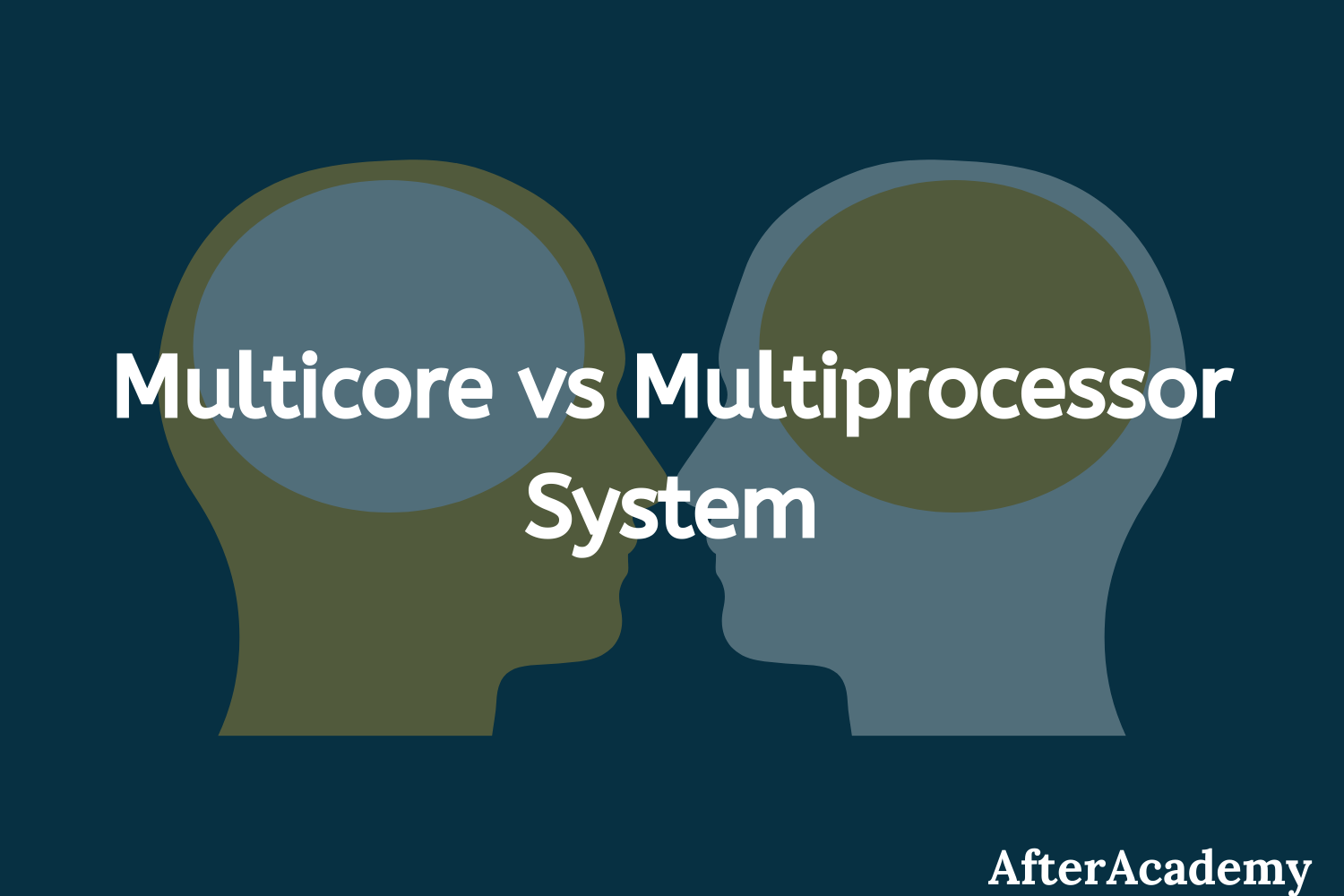What is the difference between a Multicore System and a Multiprocessor System?
AfterAcademy Tech
•
11 Nov 2019

Have you ever been confused between the terms Multicore and Multiprocessor System? If yes, then in this blog, you will learn what a Multicore and Multiprocessor systems are and what is the difference between these two types of System. So, let's get started.
Multicore System
It is a single computing component with two or more separate processing units called cores. These cores can individually read and execute program instructions. It means that the system has one CPU with multiple cores. They work in such a way that it feels like the computer system has several processors but in reality, they are the cores and not processors. The instructions that can be executed by these cores are normal CPU instructions like add, move data and branch.
In a multicore system, a single processor can run several instructions at the same time and this, in turn, increases the overall speed of the program execution in the system. It lessens the heat generated by the CPU and increases the speed of execution of instructions. These multicore processors are widely used in many domains like general-purpose, embedded, network, and graphics(GPU).
The performance of a multicore system totally or majorly depends on the software algorithms that are used for the implementation of the cores in the multi-core system. More focus is given to make those Softwares that can run parallelly because we want to achieve parallel execution with the help of multiple cores.
Advantages:
- Since multiple CPU cores are placed on the same die, so in this case, cache coherency will be higher.
- It allows higher performance at lower energy because the cores are very energy efficient.
Disadvantages:
- If you are using a dual-core system, then its speed should be double than the single-core but in reality, you will get 70-80% more speed only.
- Not every Operating System supports multi-core.
Multiprocessor System
As we know that in a uni-processor system, the processor can execute only one process at a time. But when your system is having a lot of work to do and one processor is very less to perform all those work in the required unit of time, then we can use more than one processors in the same system.
So, two or more processors present in the same computer, sharing the system bus, memory, and other I/O is said to be Multiprocessing System.
Suppose, we are having 5 processes P1, P2, P3, P4, and P5. In a uni-processor system, only one process can be executed at a time and after its execution, the next process will be executed and so on. But in a multiprocessor system, the different process can be assigned to different processors and this, in turn, decreases the overall process execution time by the system. A dual-processor system can execute two processes at a time while a quad-processor can execute four processes at a time.
Advantages of Multiprocessing
- Since more than one processors are working at a time, so more work is done in a shorter period of time. Throughput will be increased. You can read more about throughput from here.
- We have more than one processor, so if one processor is not working then the job can be done with the help of other processors. This, in turn, increases reliability.
- If you are providing lots of work on one processor then it will result in more battery drain. But if the work is divided into various processors then it will provide a better battery efficiency.
- Multiprocessing is an example of true parallel processing i.e. more than one processes executing at the same time.
Disadvantages of Multiprocessing
- As more than processors are working at a particular instant of time. So, the coordination between these is very complex.
- Since, the buses, memory, and I/O devices are shared. So, if some processors are using some I/O then another processor has to wait for its turn and this will result in the reduction of throughput.
- To have the efficient working of all the processors at a time, we need to have a large main memory and this, in turn, increase the cost.
Multicore System vs Multiprocessor System
We have seen what a multicore system and a multiprocessor system is. These are two different things. The only common thing that they share is both want to increase the processing speed of the system by executing more than one processes at a time. Some of the differences between these two are:
- In a multicore system, we have only one CPU and multiple cores are present in that CPU. While in a multiprocessor system, we have more than one CPU.
- Since the multicore system contains only one CPU, so the cost of the multicore system is lower as compared to the multiprocessor system.
- If you want to run a single program then the multicore system will be faster. But if you are running multiple programs then the multiprocessor system will be faster.
That's it for this blog. Hope you enjoyed this blog.
Do share this blog with your friends to spread the knowledge. Visit our YouTube channel for more content. You can read more blogs from here.
Keep Learning 🙂
Team AfterAcademy!
Written by AfterAcademy Tech
Share this article and spread the knowledge
Read Similar Articles
AfterAcademy Tech
What is a Database Management System and how is it different from a File System?
In this blog, we will learn what is DBMS and a traditional file system. We will also dive deep and understand the problems of the file system and get to know how DBMS resolved these problems.

AfterAcademy Tech
Difference between Mutex and Semaphore in Operating System
In this blog, we will learn about the difference between Mutex and Semaphore in the Operating System. We will first learn about Mutex and Semaphore and after that, we will find the difference between them.

AfterAcademy Tech
What is the difference between logical and physical address wrt Operating System?
In this blog, we will learn about the two types of addresses that are used for memory in the operating system. Further, we will discuss the difference among these types of memories i.e. logical memory and physical memory.

AfterAcademy Tech
What is a Process in Operating System and what are the different states of a Process?
In this blog, we will learn about Process in Operating System and we will also learn about the various states of a Process during its life cycle.
